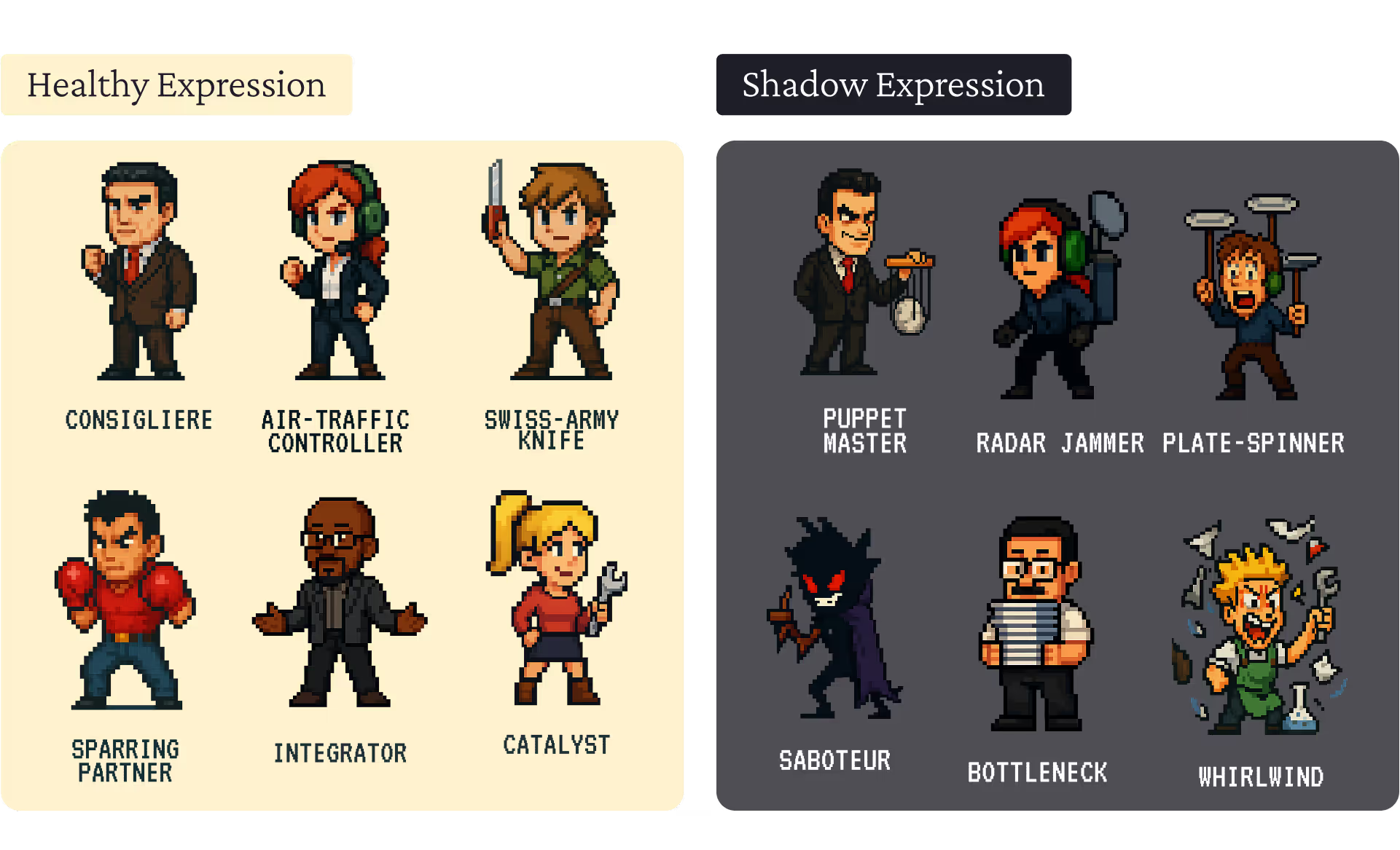Back in January 2019, I accepted the opportunity to work as Fidji Simo’s first Business Lead (commonly known in the industry as “Chief of Staff”) and this experience taught me more than I could have ever expected.
After two years as a Chief of Staff, I moved into a Product Manager role at Facebook which gave me the ability to reflect on all of the skills I learned from what was a career defining time. Learning from Fidji’s brilliant leadership first hand inspired me to keep a running list of the qualities that she exhibited as a leader that I admired. I kept thinking to myself, “these will be the leadership qualities I’ll use in the future.” But the interesting thing is that the demands and unique challenges of this role quickly forced me to start putting all of these skills into practice.
In the process of learning how to be a good Chief of Staff to a leader, I learned about the kind of leader I want to be myself.
For all of you current and prospective Chief of Staffs, I hope this gives you a sense of the leader you could become and will need to be if you choose to explore this path.
1) The Expert Connector.
Be the kind of leader that connects the dots, especially when you're not the industry expert. In the Chief of Staff role, I was in many rooms where people looked to me for my POV even though I really had no clear expertise on the topics at hand. It wasn’t until I realized that what I did bring to the table was a macro view of the business that others didn’t have access to. I had context on “why” things might be the way they are and had the ability to connect leaders across teams and projects to drive better outcomes. Often, creating synergies between cross functional teams can be a strong form of leadership, even if you aren’t the subject matter expert. As a Chief of Staff, I saw my role as being the person that could make teams more effective and efficient by connecting them to the right people and the right information at the right time.
2) Mutual Respect.
Be the kind of leader that prioritizes respect for all people on the team. I respected Fidji much before I had the opportunity to work with her, but the true success of our partnership really came down to the mutual respect that we had for one another. From day 1, Fidji showed me a level of autonomy, guidance and protection over my time and scope. She made it a point early on, to bring me into strategic conversations and often called on me for my opinion, even in rooms of very senior subject matter experts. This notion of mutual respect might feel obvious, but in the Chief of Staff role you often find yourself needing to get urgent information or critical updates from people and if you're not careful, these interactions can appear transactional. From observing Fidji, I quickly learned to be intentional about making my interactions with our teams feel like a partnership and a collaborative process. By showing my team respect as a default, I saw that it was quickly reciprocated.
3) Build communities.
Be the kind of leader that prioritizes building communities while also building strong teams. My first few months in the Chief of Staff role were quite isolating because I was the first person who had ever been in this function for the whole Facebook App. In the midst of trying to figure out what the heck I was doing, I was also asked to hire and onboard new Chief of Staffs across the App and the company - it was a real “fly the plane while building it” moment. My initial instinct was to try to hide all my imperfections, do my very best to rise up to the challenge and show a professional and put-together front to my new teammates. But I was left feeling lonely, inefficient and quite frankly, drained. So, I changed my approach. I decided to open up about challenges I was facing in the role, and as I did, the bonds within this community started to strengthen - a little bit of vulnerability created a whole lot of connection. By nurturing and investing in this community, our collective output significantly increased and it sparked opportunities that wouldn’t have surfaced otherwise. It’s also made the job way more fun and a lot less lonely.
4) Work on your strengths.
Be the kind of leader that fuels the growth mindset and silences the inner critic, so that your strengths become that much stronger. A few months into working with Fidji as her Chief of Staff, we had a career changing (and perhaps, life changing) 1:1. I had come prepared with a laundry list of all the things I needed to improve. In my mind, this would show Fidji how self aware I was and would show how proactive I was being in calling out my perceived weak spots. Wrong. With zero hesitation, Fidji asked me to put this list aside and we began to extensively talk about my strengths, or what she called “my magic”. Instead of addressing my list, we dissected the things that prevented my strengths from shining even further. At the end of our meeting we had put together a collection of things that I would focus on and you can probably imagine that this new list looked nothing like the one I had walked in with. In every role I've been in, I've found myself surrounded by people that are (way) smarter and more experienced than me - the Chief of Staff role was definitely no exception. While I'm confident that these are the right roles and rooms for me to be in to learn and grow, it's also normal to feel like your weaknesses are on display to the world. But what I realized after working with Fidji is that I needed to be kinder to myself, be my own advocate and have self-awareness to recognize and follow my "magic" more than my inner critic.
5) Spark the Magic.
Be the kind of leader that not only sees the magic in people, but makes it spark. This leadership quality might sound familiar to people who know Fidji since this is what she's known for. In the Chief of Staff role, I was lucky enough to be on the receiving end of a leader who saw my magic and truly invested in me. Fidji did so much more than just talking about what success could look like for me. Instead, she actually put her own reputation on the line and removed obstacles so that I could continue to thrive. Over the years, I’ve seen first-hand how the best leaders intentionally grow and invest in people’s magic. Regardless of level, title, salary or perceptions, I’ve learned that as you rise as a leader, you must lift up the others around you and when you see the magic in people, be the spark to help them shine brighter.
If the Chief of Staff role taught me anything, it's that opportunities to strengthen your own leadership are everywhere, especially when you are given such a unique and rare opportunity to have the context and insight that so few have access to. Even in rooms where you might not be the natural leader or final decision maker, you can help to guide people towards common unity, spark connections and bring out incredible magic in people. If you’re interested in the Chief of Staff role, I urge you to think beyond how to be a good support to your leader and to focus on learning about the kind of leader you want to be. Because, trust me, you have it in you!
This article was reposted with permission. The original post can be found here.





.avif)
.avif)








